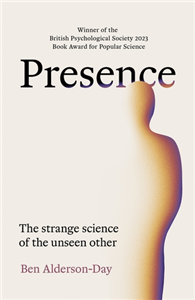Your Search Results
-
Promoted Content
-
Promoted ContentScience & MathematicsJanuary 2020
Love is the Drug
The Chemical Future of Our Relationships
by Brian D. Earp, Julian Savulescu
What if there were a pill for love? Or an anti-love drug, designed to help us break up? This controversial and timely new book argues that recent medical advances have brought chemical control of our romantic lives well within our grasp. Substances affecting love and relationships, whether prescribed by doctors or even illicitly administered, are not some far-off speculation - indeed our most intimate connections are already being influenced by pills we take for other purposes, such as antidepressants. Treatments involving certain psychoactive substances, including MDMA-the active ingredient in Ecstasy-might soon exist to encourage feelings of love and help ordinary couples work through relationship difficulties. Others may ease a breakup or soothe feelings of rejection. Such substances could have transformative implications for how we think about and experience love. This brilliant intervention into the debate builds a case for conducting further research into "love drugs" and "anti-love drugs" and explores their ethical implications for individuals and society. Rich in anecdotal evidence and case-studies, the book offers a highly readable insight into a cutting-edge field of medical research that could have profound effects on us all. Will relationships be the same in the future? Will we still marry? It may be up to you to decide whether you want a chemical romance.
-
 Trusted Partner
Science & MathematicsJanuary 2020
Trusted Partner
Science & MathematicsJanuary 2020Love is the Drug
The Chemical Future of Our Relationships
by Brian D. Earp, Julian Savulescu
'A fascinating, game-changing scientific argument for the use of unconventional medicines by those struggling with matters of the heart. We all suffer; some even kill or die for love. If "love drugs" can alleviate the pain of rejection, curb domestic abuse, and even enhance feelings of attachment in struggling partnerships, many of the important ideas here could enrich-even save-lives around the world.' Helen Fisher, author of Anatomy of Love: A Natural History of Mating, Marriage, and Why We Stray
-
 Trusted Partner
Humanities & Social SciencesMarch 2023
Trusted Partner
Humanities & Social SciencesMarch 2023Presence
The strange science and true stories of the unseen other
by Ben Alderson-Day
In this enthralling book, Ben Alderson-Day explores one of the most curious experiences known to humankind: the universal, disturbing sense that someone or something is there when we are alone - the feeling of an unseen presence. When and why do presences emerge? What does this feeling mean and where does it come from? And how can we even begin to understand a phenomenon that can be transformative for those who experience it and yet so hard to put into words? The answers to these questions lie in this fascinating exploration through cutting-edge research in contemporary psychology, psychiatry, neuroscience and philosophy. Taking the reader on a riveting and emotional journey, Presence offers remarkable insights into the experience of felt presence and how it relates to a range of medical conditions, including sleep paralysis, dementia and Parkinson's. This compelling story will stoke the fascination of sceptics and ardent believers alike who are drawn to the mystery of the unseen.
-
 Trusted Partner
Humanities & Social SciencesMarch 2025
Trusted Partner
Humanities & Social SciencesMarch 2025Presence
The strange science of the unseen other
by Ben Alderson-Day
A psychologist sets out to understand the uncanny phenomenon of felt presence. We all know the feeling: you're alone but it's like there's someone there with you - a mysterious presence lurking just out of sight. Throughout history this experience has been the subject of religious and supernatural speculation. But does science have the answer? In Presence, psychologist Ben Alderson-Day digs into historical accounts and contemporary cases of 'felt presence', hunting for the key to unlock this strange phenomenon. He interviews ultrarunners and ocean rowers, who often report the sensation of being accompanied on their journeys, and examines the latest work on sleep paralysis, dementia and Parkinson's, conditions closely associated with feeling the presence of someone or something that isn't there. His findings, built on cutting-edge research from psychology and neuroscience, provide remarkable new insights into this longstanding mystery of the human mind.








